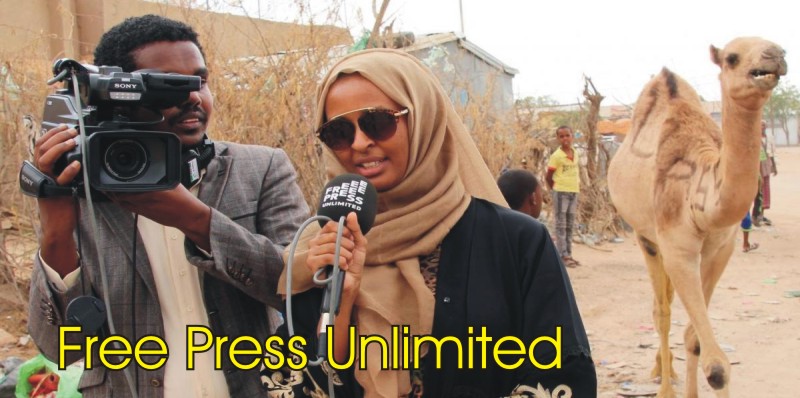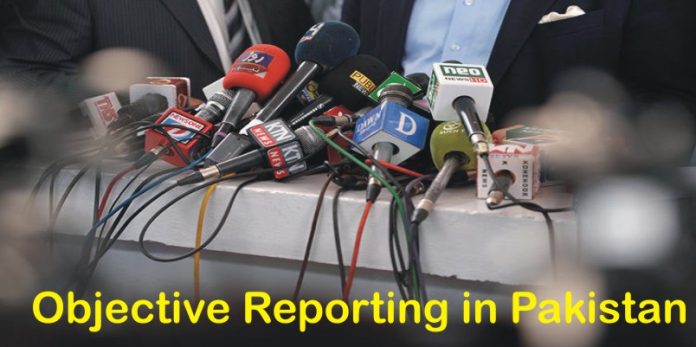Objectivity in journalism aims to help the audience make up their mind about a story, providing the facts alone and then letting audiences elucidate those on their own.
Objective reporting is meant to picturize issues and events in a neutral and unbiased manner, regardless of the writer’s opinion or personal dogmas.
Reporting should be an unbiased job. A reporter should essentially be a real storyteller. He should tell the story objectively and truthfully, without polishing it with any personal opinions or comments. He should be fair and impartial in presenting the facts. Some debates that achieve complete objectivity are not fully possible.
Complete objectivity is not hundred percent possible. They argue that the reporter has certain beautiful and fantastic ideas, emotions, viewpoint, estimation, and prejudgments and that will reflect in the news story.
A good and honest reporter however should try to rise above all of them and tell the truth as he has collected them in his search for analysis. A reporter should be responsible for his presentation. No responsible reporter would behave like for example the shameful American journalist, Janet Cooke, who won the prestigious Pulitzer Prize in 1980 for a story about drugs which was later proved to be fictional.
In Pakistan Free Press Unlimited and Pakistan Press Foundation train journalists in Pakistan to produce balanced and objective investigative reports. It provides Pakistani journalists with important knowledge and devices that will enable them to write critical stories and act as an observer for their communities.

With this project, Free Press Unlimited is constructing on Pakistan Press Foundation’s long history of working to improve and further independent media in Pakistan. The object is to encourage investigative research journalism and increase the reach of professional journalism across Pakistan.
To achieve this, the media need to train and educate Pakistani journalists in investigative journalism and producing balanced and objective reporting, whilst combining an important groundwork of professional, ethical, and independent journalism.
With the support of Free Press Unlimited, Pakistan Press Foundation has been working very hard to establish an Investigative Journalism Center. The center aims to provide a physical place to bring together journalists and encourage a greater praiseworthy for, and capacity to, write critical investigative analysis reports. It also provides a place to link journalists beyond big cities into the rural and far-flung regions of Pakistan.
Developing investigative journalism has been a challenge, as alike for daily news means journalists do not have the capacity or equipment to produce an investigative or a research report. Pakistan Press Foundation, therefore, trains journalists from across Pakistan. Each student is supervised by a senior investigative journalist, and trained in creating high-quality investigative reports.
At the end of the fellowship, thirty journalists will be given the tools and understanding they need to write stories that go into more deepness. They will be able to explore issues that are important to communities and provide significant information to the people that live there.
The investigative journalism fellowship will back participants throughout the writing process, to create an investigative report by the end of the fellowship period, as well as providing support material for further investigations they will pursue. In this way, Free Press Unlimited in partnership with Pakistan Press Foundation wants to ensure that this project has a permanent impact on its participants.
Free Press Unlimited works on capacity-building projects that aim to support judgments, independent reporting from local journalists, to encourage a more enabling environment for freedom of expression.
In Pakistan, this work is specifically arduous. Pakistan holds a pivotal position as one of the most unkind media climates in the world. Freedom of expression in Pakistan continues to be limited. Violence against journalists and media professionals is accelerating, and guilty persons of such crimes enjoy a high level of no punishment. Neutral, serious, and reasonable media are difficult to find. Pakistani journalists often risk their lives to do their jobs.
We strongly feel that local organizations such as Pakistan Press Foundation, which are working to ameliorate this field, are given support from well-known international organizations such as Free Press Unlimited to strengthen their efforts.
Also read: Working Journalists dying for non-payments
The Pakistan Press Foundation has a long history of working towards policy-making journalism in Pakistan, having spent fifty years aggressively promoting freedom of expression and ethical, independent media. The foundation also keenly observes the media environment in Pakistan, reporting attacks on journalists and media professionals, restrictions set against freedom of expression, and issues of no punishment.
Journalists trained as part of this project will be in a stronger position to contribute to the development of Pakistan’s independent media and advance its ability to act as an observer, bringing accountability.
Pakistan has a dazzling media landscape; among the most dynamic in South Asia and the world. The majority of media in Pakistan is privately owned. Television is the major source of news and information for people in Pakistan’s towns, cities, and large areas of the countryside.
To a large extent, the media enjoys the freedom of expression despite political pressure and direct bans sometimes administered by political stakeholders. Political media pressure is mostly done indirectly. One device widely used by the government is to anger media from governmental advertising. Using strict laws the government has also banned or officially isolates popular television channels.
The security situation of the journalist has improved and the number of the journalist killed in Pakistan has also declined considerably. A recent report from Reporters Without Borders implies considerable improvement in the freedom of the press compared to the preceding year.
It’s time the public in Pakistan realize what journalists in the West have known for a long time.

